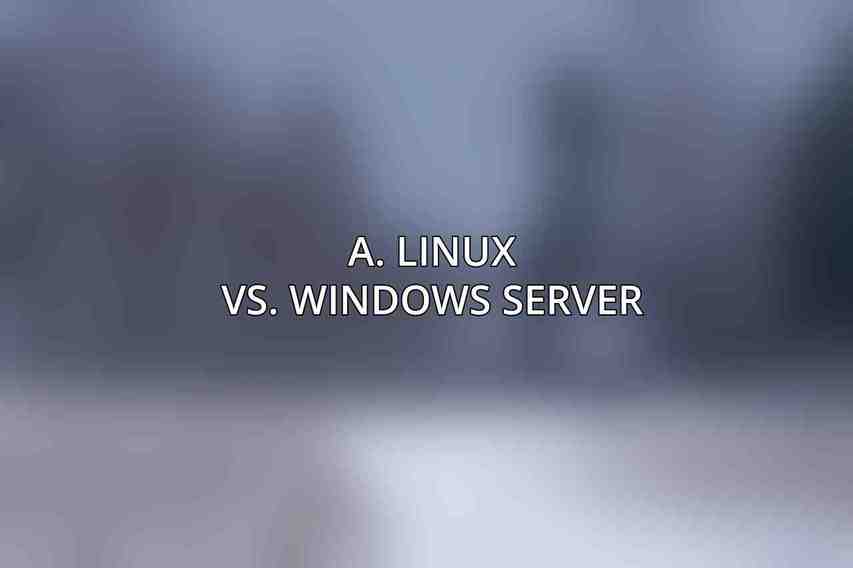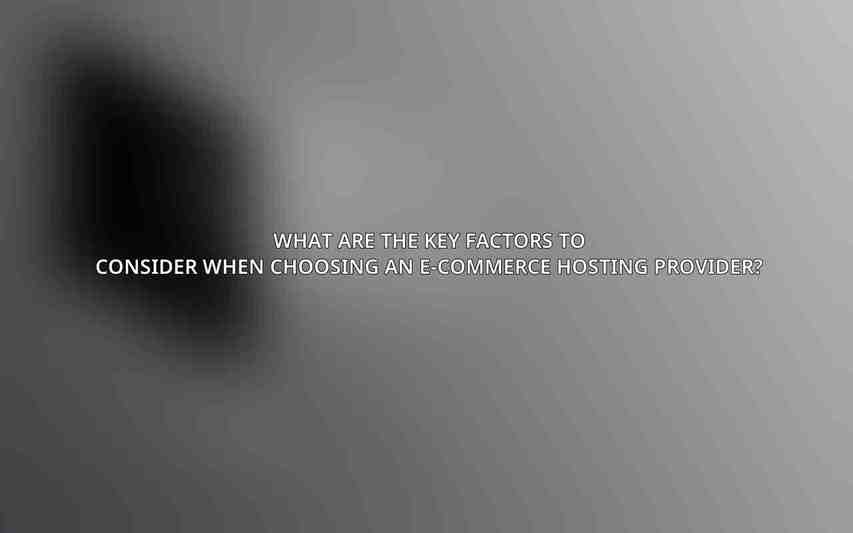E-commerce hosting plays a vital role in the performance and success of online businesses. It involves the infrastructure and technology needed to support an e-commerce website effectively. The hosting provider you choose can significantly impact various aspects of your online store, including SEO, customer satisfaction, and revenue generation. You can find more information on Top E-commerce Platforms of 2024: A Comprehensive Review
Hardware Requirements for E-commerce Websites
When setting up an e-commerce website, hardware requirements play a crucial role in ensuring optimal performance and user experience. Here are some essential hardware components to consider: Explore further with Ensuring Security on E-commerce Platforms: Best Practices
A. Server Processor (CPU)
The server processor, often referred to as the CPU, is the brain of the server responsible for handling computations and operations. Common types of server processors include Intel Xeon and AMD Ryzen. When selecting a CPU for an e-commerce website, consider factors such as core count and clock speed to ensure smooth operations even during peak traffic periods.
B. Server Memory (RAM)
Server memory (RAM) is another critical hardware component that directly impacts website performance. Choosing between DDR4 and DDR5 RAM depends on compatibility and performance requirements. Ensure that your e-commerce website has an adequate amount of RAM to support multiple concurrent users and data processing tasks efficiently.
C. Hard Disk Storage
Storage options such as HDD, SSD, and NVMe offer varying levels of performance and capacity. Selecting the right type of storage based on your e-commerce website’s requirements is essential. Consider factors like read/write speeds, storage capacity, and data access times when deciding on the storage solution for your online store.
Operating System and Software Requirements
Operating systems and software platforms are crucial elements of e-commerce hosting that can impact the stability and security of your online store. Consider the following aspects when determining the best fit for your e-commerce website:
A. Linux vs. Windows Server

Choosing between Linux and Windows Server involves weighing the advantages and disadvantages of each. Linux is known for its stability and security, while Windows Server offers compatibility with Microsoft technologies. Consider your familiarity with the operating system and the software applications you intend to run on your e-commerce platform.
B. E-commerce Software Platforms
E-commerce platforms such as Magento, WooCommerce, and Shopify provide the foundation for building and managing online stores. Understanding the system requirements and compatibility of these platforms with your hosting environment is essential for seamless e-commerce operations.
For further information on e-commerce hosting requirements, continue to the next section.
Frequently Asked Questions
What are the key factors to consider when choosing an e-commerce hosting provider?

Key factors to consider include security features, scalability, uptime reliability, customer support, and pricing.
What is the difference between shared hosting and dedicated hosting for e-commerce websites?
Shared hosting means sharing server resources with other websites, while dedicated hosting provides a server exclusively for your website, offering more control and resources.
How important is SSL certificate for an e-commerce website?
SSL certificate is crucial as it encrypts data transmitted between the website and the users, ensuring secure transactions and protecting sensitive information.
What should be the minimum uptime guarantee for an e-commerce hosting provider?
The minimum uptime guarantee should be 99.9% to ensure your website is consistently accessible to customers.
Does e-commerce hosting require specific security measures?
Yes, e-commerce hosting requires robust security measures such as firewall protection, malware scanning, and secure payment gateways to safeguard customer data and transactions. Dive deeper into How to Start an E-commerce Website: A Step-by-Step Guide

